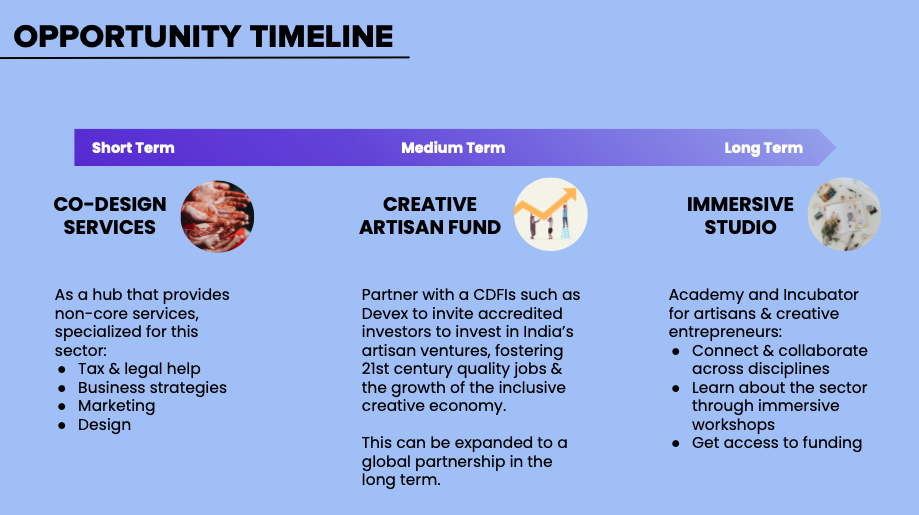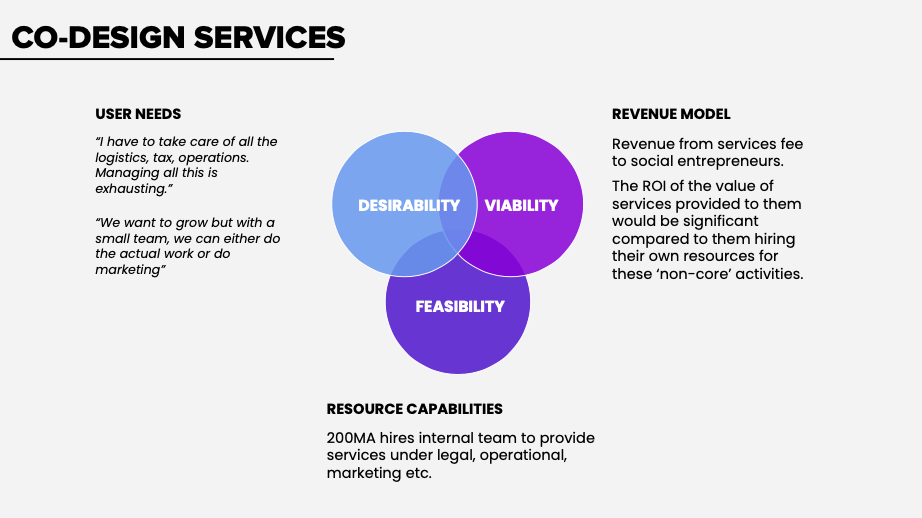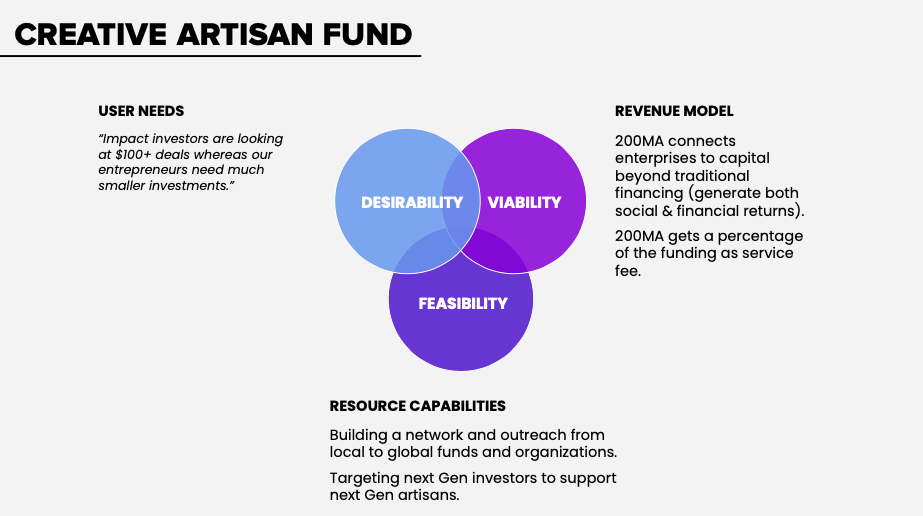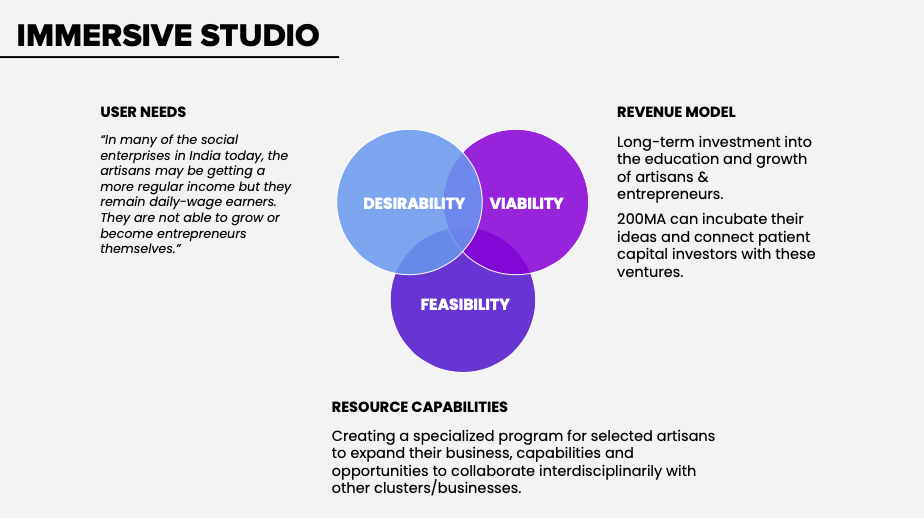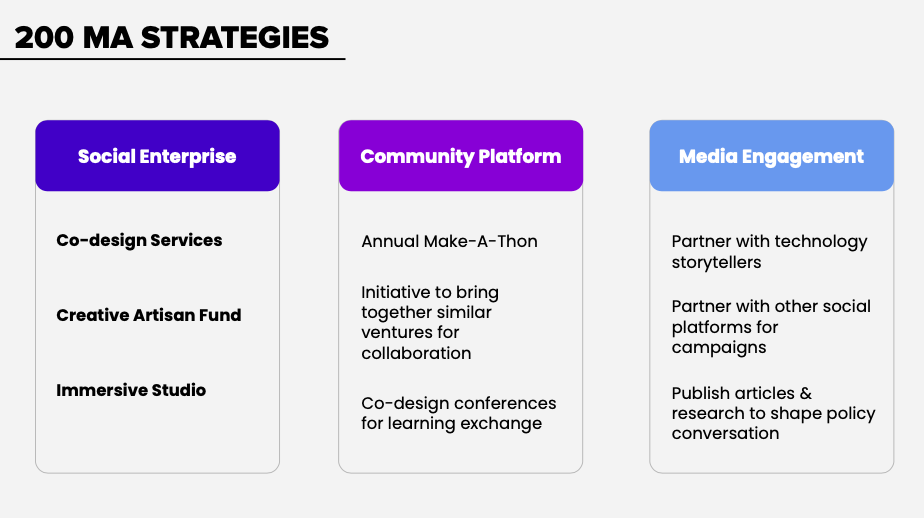200 Million Artisans
Building a sustainable future for the artisan economy in india
Role: Design Strategist
TEAM partner: Vasuta kalra
Main methods I used:
+ Market analysis
+ Opportunity matrix
+ Business model design
+ Ecosystem research
+ Stakeholder map
+ Stakeholder interview
The Client’s Brief
200 Million Artisans is an organization that connects passionate entrepreneurs, strategists, designers, and researchers with a shared ambition to transform the artisan economy in India by bridging the gaps in knowledge, resources and partnerships.
With 200 Million Artisans as a platform, how might we create a global network and community of impact entrepreneurs, who are working with artisans to incorporate sustainable production methods?
To approach the client’s brief, we used the following process:
The Artisan Sector in India
The artisan sector is the backbone of India’s non-farm rural economy. It is deeply embedded in mythology. Artisans are considered the descendants of Vishwakarma, the presiding deity of crafts and architecture.
For over 30 years, the number of Indian artisans has decreased by 30%. Some Indian artisans are wage-workers while most are fully self-employed and work as a family unit with informal work settings.
The ability to work across religious, caste, and cultural divides, while fostering dialogue, social inclusion and creativity makes this line of work unique.
Ecosystem Challenges
Infrastructural challenges:
access to infrastructure in last-mile outposts
supply chain inefficiencies and fragmented value chains
scalability
training and design input for a changing market
the challenges imposed by COVID-19
Social challenges:
devaluation of the trade due to the low social prestige of craft in society
lack of paths to prosperity makes this field a non-lucrative proposition to the next generation
heritage preservation is at risk
the sector lacks media visibility
Systemic challenges:
colonial structures in business practices, such as poor wages and working conditions upheld by luxury and international brands
government inefficiencies, such as designs done by bureaucrats that lack practicality
lack of funding, as impact investors are not keen to invest in small enterprises with expected low and slow returns
Understanding the Market
Towards a Sustainable Model for 200 Million Artisans
Reframing the problem:
How might we create a spirit of shared mission and goals within the network?
How might we create a sustainable business model for 200MA?
How might we explore non-traditional access to capital for artisan entrepreneurs?
Solution concepts:
Co-Design Services that allow 200MA members to outsource their non-core activities like marketing, legal work, taxes, etc.
A Creative Artisan Fund made in partnership with CDFIs and social enterprises such as Devex in India
An Immersive Studio growth program for artisan cohorts, based in top Indian cities

